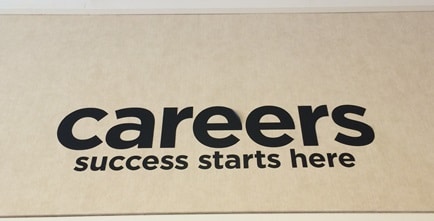10 Soft Skills Every Employee Needs to Know
In the workplace, skills are typically broken down into two categories: hard skills and soft skills. Hard skills are defined as specific, teachable actions that can be defined and measured. Examples include the ability to use a particular software, arithmetic, or accounting. Soft skills are traits or qualities that make someone a good employee or team member.
Today’s post isn’t about which one is more important. Both are important. But sometimes, we have a tendency to minimize soft skills. Frankly, I think it’s because of the word “soft”. Soft can be misinterpreted as fluffy or unnecessary. Make no mistake – soft skills are incredibly important to our business success. Here’s a list of ten soft skills I regularly hear managers say they want employees to possess:
- Self-awareness – It starts here. We have to know who we are and be comfortable in our own skin. This doesn’t mean we won’t set goals and try to improve ourselves. Being self-aware allows us to better understand our working relationships with others.
- Communication (verbal and written) – There are so many mediums for communication – email, texting, social media, etc. We have to get our messaging right. That means using the right medium for the message. Then crafting the message so it is heard by the intended audience.
- Listening (and accepting feedback) – I totally understand that multi-tasking is a part of life. That being said, sometimes multi-tasking isn’t appropriate or effective. We improve our listening skills by focusing. When others are giving us feedback, they deserve our attention.
- Networking – This isn’t just about finding a new job. Networking takes place both internally and externally. Effective networking takes good communication and listening skills. People who are good networkers are able to ask for information and help when it’s necessary.
- Collaboration (and teamwork) – There’s nothing wrong with being an individual contributor and enjoying working alone. But we must be able to work with others when the project calls for it. And we must be able to adjust our communications when working in a group so the team is successful.
- Meeting management (both as a participant and meeting leader) – As much as we might love for meetings to disappear, that’s not going to happen. But we can learn how to make meetings more effective. Managing meetings well and contributing valuable information is essential.
- Conflict resolution – Managers today do not want to play referee. Frankly, they don’t have time. Companies are operating lean and everyone’s plate is full. Employees need to resolve their own conflicts.
- Problem solving – Remember that well-worn cliché, “Don’t just bring me a problem, bring me a solution.” It’s still true. Companies expect employees to share their thoughts about how to solve problems. Even if the solution presented isn’t adopted, it likely started the conversation.
- Stress management – Work/life balance and employee burnout are popular topics of conversation these days. Employees need to manage their own stress. And not just by taking a vacation. Understand what brings on stress and how to alleviate it within the normal business day.
- Time management – One way to control stress is to control time. Learning how to effectively manage your time can have a huge impact on productivity and the number of hours spent on work.
[clickToTweet tweet=”The 10 Soft Skills Every Employee Needs to Know” quote=”The 10 Soft Skills Every Employee Needs to Know” theme=”style3″]
Like hard skills, soft skills can be acquired. There are three ways to perfect your soft skills:
Hear – Examples are listening to podcasts, webinars, feedback from coaches and mentors, etc.
See – Including reading blogs, articles, and watching role models in action
Do – Set a goal and try it yourself
People have to possess both the technical skills for the job and the soft skills to be an excellent employee. What soft skills do you think are essential for today’s employees?
5